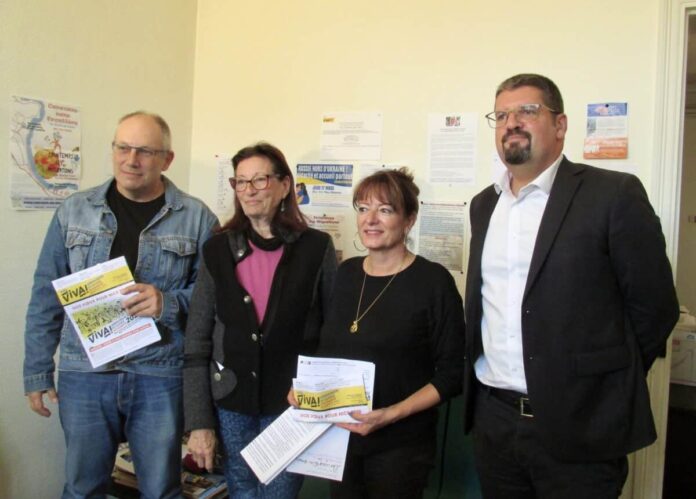The citizen movement contests the unilateral designation of Juliette Chesnel-Le Roux as the lead candidate. It denounces a break with the momentum born from the 2024 legislative elections.
In Nice, the left is already preparing for the 2026 municipal election. Yesterday, Friday, September 5, the socialists, communists, and ecologists announced their joint candidate: Juliette Chesnel-Le Roux. This decision, presented as an act of unity, is not a consensus. The citizen movement Viva! sees it as a political dead end.
In a statement, the organization speaks of a “strategy of irresponsibility.” For its members, the method employed breaks the momentum born around the New Popular Front during the 2024 legislative elections. They recall that for the first time in a long while, left-wing candidates reached the second round in Nice. According to Viva!, this momentum had mobilized many citizens previously distant from politics, particularly among the youth.
A Fracture in the Progressive Camp
The terms used by Viva! are clear. “The choice by PS, PCF, and the Nice ecologists to announce their lead candidate unilaterally and early confirms the abandonment of a sincere unitary approach,” claims the movement. For them, this positioning threatens the chances of building an alternative capable of competing with the right and far right in 2026.
Viva! highlights that it advocated for a broad approach. The movement states it systematically proposed “a broad gathering of the left and ecology without exclusivity.” But its efforts have not resonated. The organization believes that by prioritizing a rapid designation, traditional parties are closing the political game.
“The irresponsible abandonment of a unitary approach of the entire left jeopardizes the hope of effectively blocking the far-right and the extreme right,” continues the statement. In response, Viva! announces its intention to continue its action. The collective wants to rely on “a true popular mobilization” and affirms its commitment to supporting themes of local democracy, solidarity, and ecology.
On the side of the three parties, the focus is on displaying unity. The meeting on September 5, organized in Borriglione, confirmed the nomination of Juliette Chesnel-Le Roux. President of the ecologist group at the municipal council and Metropolitan area, she was presented as the figure capable of uniting. “Juliette Chesnel-Le Roux will be our lead candidate. End of suspense,” declared Patrick Allemand, leader of the socialists.
The joint list is starting to take shape. Communist Julien Picot holds the second position, while Patrick Allemand is among the top four. The third position remains under discussion.
In her first statement, the candidate emphasized social justice and purchasing power. “This will involve housing and transport,” she explained. She insisted on the ecological transition, which she wants to focus on clean mobility, and on local democracy, based on transparency and inhabitant involvement.
Julien Picot detailed other priorities: rent control, the stoppage of luxury tourism, free public transport, the establishment of a local police force throughout the city, and the creation of cultural forums as of 2026.
Two Approaches Face to Face
The fracture is not complete. PCF 06, through Julien Picot, expresses a desire to “work with everyone, without red lines.” Discussions with La France Insoumise are still open, although no progress has been made since the beginning of the summer. Communications with Viva! have not been cut either. The departmental secretary assures that the citizen movement was “attentive” to the presented project and that no door is closed.
For now, the actions contradict this openness discourse. Viva! rejects the method and refuses to validate an appointment it considers premature. The movement positions itself as a guarantor of a citizen approach, in contrast to what it describes as a “race for positions.”
With a little over six months to go before the elections, two strategies thus coexist within the progressive camp. On one side, a list already structured around an ecologist official and traditional political bodies. On the other, a collective rejecting this logic and claiming to maintain a broader outlook.
The municipal campaign in Nice promises to be lengthy. It will be marked by these internal tensions, amid social, ecological, and democratic challenges. It remains to be seen whether the left-wing actors will find common ground before 2026 or head into the election divided against the right and far right.


